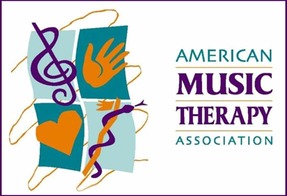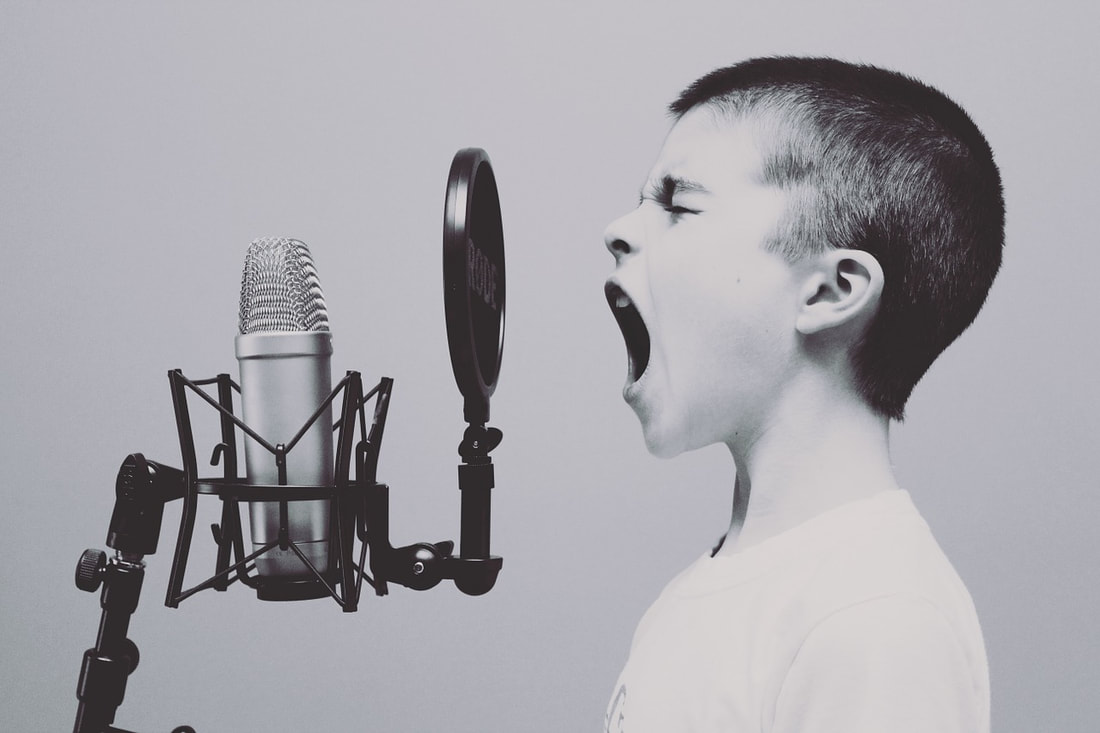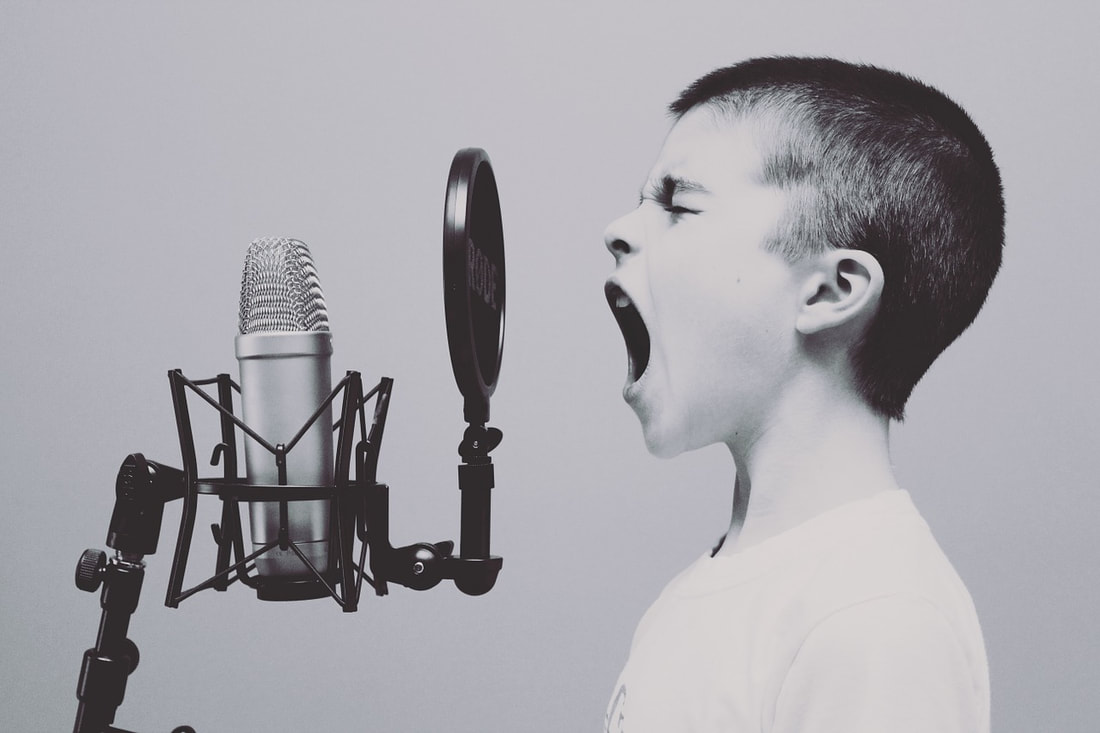|
Music has a way of strengthening a sense of community as it uplifts people’s spirits and brings them together to enjoy an experience transcending the borders of language. Today, as the novel coronavirus continues to spread across the world, people sheltering in place are rediscovering how music can create a joyous shared event even when they are physically apart. With about half of the world’s population under lockdown or quarantine by the beginning of April 2020, professional musicians and singers—and everyday people of all ages and backgrounds—have found joy in using Zoom, Skype, and other types of video and audio technology to make music together while safely socially distanced. As Italy went under lockdown orders, citizens began to sing to one another across their balconies, leaning out their windows, or standing on their roofs. More and more viral videos showed these scenes repeated across Spain, France, India, Israel, the United States, and many other countries. Online orchestras and ensembles that are unable to perform together in the same space have harmonized online through the medium of 21st-century technology, while star-studded benefit galas featuring socially distanced performers raised money to help first responders, patients, and those who had lost jobs and homes in the lengthening shadow of the pandemic. Why we need music nowMusicologists and psychologists point to the desire to bond with other people through music as a central human attribute. Human beings seem to possess an innate need to make connections with others—the kind of face-to-face connection that social media, phone calls, and even video chats can’t provide. Yet when you add music to the online mix, people tend to feel closer. Music can be a powerful counterweight to the widespread feelings of social isolation and alienation, particularly in the present crisis. Research has demonstrated that humans produce more oxytocin, known as a “bonding” hormone, during choral singing or when otherwise sharing music. And with increased oxytocin levels come increased feelings of comfort, safety, and peace. Popular music unites the worldOne World: Together at Home was one of the most-watched—and most moving—benefit concerts in recent memory. While raising money to support food banks and affordable housing, as well as treatment and vaccine development at the World Health Organization, the live-streamed April 18 concert touched the hearts of people all over the world. Favorite artists such as Lady Gaga, Elton John, Alicia Keys, Jennifer Lopez, John Legend, Billie Eilish, and Lizzo created moving moments for viewers, who saw them in a new and personal way as they performed from their homes. The eight-hour production, curated by Lady Gaga and produced by the group Global Citizen, is thought to be the largest musical fundraiser held since 1985’s Live Aid, which supported African famine relief. One World: Together at Home ended up raising more than $127 million for coronavirus relief efforts. Technology democratizes great operaThe Metropolitan Opera in New York, shut down like all other performing arts venues in the city, held its virtual At-Home Gala concert on April 25. The four-hour event featured more than 40 of the biggest names in opera performing via Skype. The event supported the Met’s fundraising campaign to keep its company’s future secure. Music director Yannick Nézet-Séguin conducted and performed on the piano from his Montreal home. Performers included American soprano Renée Fleming, who sang “Ave Maria” from Verdi’s Otello, with her Virginia garden visible in bloom in the background. Soprano Anna Netrebko and tenor Yusif Eyvazov performed from Vienna, with Netrebko delivering a passionate version of Rachmaninoff’s reworking of Georgian folk melodies. From her warm yellow-walled living room in Baton Rouge, Louisiana, soprano Lisette Oropesa performed “En vain j'espère” (“I hope in vain”) from Meyerbeer’s Robert le Diable, with pre-recorded accompaniment by renowned pianist Michael Borowitz. In addition to its artistic quality, the entire production drew rave reviews for the high quality of its technical support, showing how some of the best minds today are stepping up to creative challenges that would have been unthinkable only a few months ago. Alone, a beloved singer brings people togetherAnother remarkable performance set a record for the largest audience to simultaneously view a classical music live stream on YouTube. On Easter Sunday, tenor Andrea Bocelli gave a Music for Hope concert from Milan’s Il Duomo cathedral. Alone except for his socially distanced accompanist at the organ, Bocelli sang sacred pieces composed by Gounod, Mascagni, Rossini, and others, and concluded by standing alone outside on the cathedral steps.
As Bocelli sang the hymn “Amazing Grace,” the camera soared up and out over the architecturally stunning cathedral and across the cityscape of Milan. Bocelli said that he believed in the power of music to bring people together, and his performance touched millions around the world, particularly those in northern Italy enduring some of the most sobering days of the pandemic. Music therapy has long been recognized as a way to help patients heal from trauma. Music-focused therapy offers multiple benefits: it can foster positive social relationships, reduce feelings of anxiety, modulate the intensity of emotionally fraught memories, and bring about emotional catharsis as patients work through painful events. Music therapists have assisted people who have experienced some of the most terrifying natural disasters and terror attacks in recent history. For instance, therapists have brought the healing powers of music to survivors of 9/11, Hurricane Katrina in 2005, mass shootings, and war and conflict zones around the world. A tested healing profession The American Music Therapy Association (AMTA) offers a concise definition of its field: Music therapy is anchored in clinically verified and evidence-based practices designed to help patients achieve their therapeutic goals in collaboration with professionals credentialed through an approved music therapy program. A professional qualified in music therapy can assist clients in a variety of settings, including private practice, public hospitals, mental health clinics, substance abuse treatment facilities, and more. A century-old treatment for trauma Music therapy as a means of healing after trauma first gained currency in the United States after American physicians began treating soldiers who developed post-traumatic stress disorder (PTSD) during service in the First World War. Today, music therapy and its practitioners are part of a well-established medical and psychiatric tradition. Building multiple types of resilienceMusic therapy is not a “cure” for the aftermath of trauma, but it can help patients of all ages strengthen their understanding of their emotions and acquire positive skills for coping with long-term symptoms. The AMTA’s principal findings on the efficacy of music therapy note that it can be effective in strengthening patients’ ability to function successfully in terms of their emotions, reasoning capacity, relationships, and overall behavior. When successfully practiced, music therapy can also ease muscle tension, and it can be conducive to promoting greater relaxation and increased openness in interpersonal relationships. Going where words cannot For people who have experienced trauma, music can provide a deeply important means of communicating what they urgently need to express—without words. Music therapists often point out that their patients need to be reassured that the often-overpowering emotions they may feel in response to trauma are normal and valid. Patients also sometimes need “permission” to explore what are often threatening or negative emotions surrounding the events of their trauma, in a safe environment. Music therapy has shown the ability to provide a wordless way for patients to express fraught or uncomfortable emotions about traumatic experiences. The non-invasive, non-judgmental aspect of music therapy is particularly important to note here. Patients can pour their feelings into listening to or performing highly expressive, artistic creations without fear of the negative reactions or judgments of others. While talk therapies are often very helpful to patients, experts point out that music therapy offers the advantage of providing clients with a quick resource for tapping into previously ignored or threatening feelings and memories. In certain instances, music therapy has even been shown to lead to shorter inpatient stays and a better fulfillment of clients' larger goals for treatment. Increasing confidence and control Music therapy can also help patients to feel more in control of their own emotions and can give their self-confidence and feeling of personal empowerment a much-needed boost. For people who have undergone traumatic experiences, this is especially needed. Many people who have been traumatized feel confused, bewildered, and powerless. They may feel as though life has become chaotic and that nothing—and no one—can be trusted. Healing relationshipsIn addition, music therapy can assist people in reconnecting with their loved ones in positive ways, reestablishing bonds of intimacy that may have been strained or broken under the strain of the trauma. Easing stressStress reduction is perhaps one of the most meaningful and most studied benefits of music therapy. According to the American Psychological Association, a study of pre-term babies in a neonatal intensive care unit suggested that lullabies may have the power to soothe infants and their parents, who find themselves in the midst of a bewildering array of medically necessary, but intrusive and noisy machinery. The researchers in this 2013 study also surmised that the soothing music might have the ability to regulate the babies’ sleep habits.
Interestingly, of all the methods of delivering the music to the babies, singing was the most effective at slowing their heart rates and lengthening the amount of time they remained in a state of calm alertness. According to the study’s lead author, live music in particular shows the most potential to appropriately stimulate and activate the human body, elevate a patient’s quality of life, and promote recovery. A 2016 piece in The Atlantic echoed numerous other recent articles noting that increasing focus on academic standards and testing in schools has led to a declining focus on character building and empathy. While parents and teachers are becoming more aware and concerned about this problem, music offers many solutions. Here are seven ways music education can promote social harmony: 1. Developing compassionate citizens.Renowned music educator Dr. Shinichi Suzuki, who originated the Suzuki method, understood that learning to play a musical instrument could be a significant part of learning to develop into a caring human being and a good citizen. In fact, many music teachers view the Suzuki method as being in a class by itself for this very reason. Experienced teachers also note that the same skills acquired when children study music lead to the development of positive character traits such as tolerance, respect, and a sense of perspective. Working together to study and perform a piece of music fosters a sense of common purpose and encourages collaboration with other people who come from a variety of backgrounds and possess a range of viewpoints. 2. Getting people in touch with their emotions.In their book Music Matters: A Philosophy of Music Education, published by Oxford University Press, David Elliott and Marissa Silvermann discuss the emotional component in music. This is a perennial topic in any discussion of music, going back to the days of the ancient Greeks. Both Plato and Aristotle commented on the ability of music to evoke either positive or negative emotions in listeners. Neurologists and psychologists focused on the power of music agree. In fact, sophisticated new research studies show how musical notes and chords can produce corresponding emotional states in listeners. 3. Counteracting bullying.In fact, a 2015 article in Psychology Today magazine even suggests some music is a possible antidote to extreme antisocial behaviors such as bullying and bigotry. The article points out that learning to play a musical instrument beyond the level of bare technical proficiency draws on a host of emotional skills and sensitivities. In order to produce the most pleasing sequences of sounds and reach the hearts of audience members, a player needs a certain level of emotional maturity and expressiveness. A range of talented musicians have opined that music can deepen and broaden an individual’s perspective. As a result, he or she can grow beyond early prejudices and begin to view other people with greater comprehension and appreciation. For example, the late jazz musician Paul Horn was once quoted as saying that music is an extremely useful way to bring people together in greater peace and mutual understanding, easing the burden of communicating across personalities and cultures. Numerous other musicians have specifically noted music’s power to overcome even the strongest racial and cultural prejudices. 4. Reducing violence.A group made up of musicians, producers, and others based at the University of California, Los Angeles created a collective performance space for the expression of a wide variety of world music instruments and genres. They called their collective Westwood Village Entertainment Group. It has worked to facilitate a welcoming environment for a diverse group of musicians, performers, and audiences. The idea emerged out of one young ethnomusicologist’s experiences growing up in a crime-filled neighborhood in New Jersey. The young man found escape through learning to play African drums. Now, because of WVEG, he and his fellow musicians hope to foster a sense of community and welcome. 5. Reminding listeners of relevant events or eras.The canon of popular music is filled with deeply moving, inspirational pieces that seek to heal the rifts and prejudicial attitudes that arise between people. Examples include Marvin Gaye’s “What’s Going On?” as well as Curtis Mayfield’s “We Got to Have Peace” and the classic hymn of the Civil Rights era, “We Shall Overcome.” 6. Reducing bias and promoting empathy.One study, published in Psychology of Music, centered on a social experiment with elementary school children in Portugal. Their community is composed of lighter-skinned people descended from families with long histories in the European country as well as darker-skinned people whose heritage lies in the African island nation of Cape Verde. Over a period of several months, the researchers introduced one group of young students to songs from Cape Verde in addition to their regular lessons in European Portuguese music. A control group did not receive exposure to the Cape Verdean songs. Before the study, all of the children surveyed displayed a moderate amount of bias against darker-skinned individuals. By the conclusion of the study, however, the children who had been exposed to the music of Cape Verde demonstrated significantly lower levels of such prejudice. The control group showed no change in their negative attitudes. The researchers in this study theorized that, for the children involved, learning to like the music of Cape Verde translated over into learning to like the other children whose families came from Cape Verde. This aligns with a principle identified in psychological research. The idea is that a feeling of similarity or having common interests with another person tends to increase empathy for that person. The researchers further theorized that songs may be particularly valuable tools for fostering feelings of commonality and similarity, and thus of empathy. 7. Strengthening interpersonal relationships.A 2015 article in Music Educators Journal makes a similar point. Its authors posit that the collaborative experience of making music with others involves activities such as synchronization, group problem-solving, imitation, and call-and-response.
All these activities tend to have a positive influence on interpersonal relationships and on individuals’ abilities to work successfully in groups, and thus, on the development of empathy. According to experts, the themes of music are the themes of human life itself. Therefore, learning to make music makes us more human. Music offers a direct channel to human emotions, and this connection can be surprisingly useful in changing mood, attitude, and lifestyles for the better. Many people use music to relax after a stressful work or school day, and educators all over the world have opened the doors of their classrooms to its ability to promote an atmosphere of focused calm. Here are seven ways that the power of music can aid human mood and performance: 1. Music helps relieve depression, stress, and emotional pain.When psychologists use music therapy with their patients, they concentrate on the ways in which it can facilitate feelings of comfort and relief from stress and trauma. People report feeling better able to self-regulate their emotional states and becoming more aware of their own emotions, as a benefit of listening to music. According to the American Music Therapy Association, therapeutic programs anchored in music can help improve a person’s resiliency in the face of stress. That’s because music can trigger the release of body chemicals that act as natural stress reducers. One study reported that listening to music was as relaxing for the test subjects as having a massage. Older adults exposed to music have shown themselves to become less depressed and to experience increases in self-esteem. For children, particularly those who have undergone trauma or who live with disabilities, the mathematically ordered rhythms of music can produce a sense of increased personal security. Music genres often make a big difference. Research shows that loud, discordant music can make symptoms of depression even worse, whereas classical music and gentle nature sounds are uplifting. 2. It also decreases physical pain.Music even helps alleviate symptoms of physical pain. Surgeons who allow their patients to listen to soothing music before and after their procedures tend to need to prescribe less pain medication. Some experts recommend that anyone about to undergo surgery should have the opportunity to enter a state of relaxation through music. And for people coping with chronic conditions and diseases such as cancer, music has demonstrated its capacity to heighten feelings of life satisfaction. Physicians who administer palliative care specifically focus on alleviating pain, and understand the importance of music in promoting a sense of peace and wellbeing for their patients. 3. Music fosters a better overall mood and greater productivity.Slow-paced classical music has gained particular renown among researchers for its ability to induce a pleasant state of relaxed attentiveness. Classical music can reduce a person’s pulse and heart rate, and can even reduce blood pressure levels. When people lower their levels of stress through music, their productivity at work and at home can both increase. One particular study, for example, showed that overworked students in a nursing program experienced less intense feelings of burnout after listening to music. 4. “Sad” and “happy” music both have their place.One recent survey of Finnish and British subjects showed that, for many people, even music with a sorrowful tone can increase positive feelings and foster a sense of wellbeing. Researchers found that many people preferred to listen to sadder music after an emotionally significant loss. For some, this experience was similar to talking with an empathetic and insightful friend who is a good listener. Not surprisingly, one 2013 study found that joyous, upbeat music acts to elevate a person’s mood. Research subjects who listened to “happy” music actually became happier after a period of two weeks. General happiness offers positive effects that reach far beyond mood. Thanks to the mind-body connection, the greater an individual’s sense of happiness, the more likely he or she is to be healthier, earn a higher income, and build more satisfying personal relationships. 5. Music aids meditation and sleep.For people who meditate, music acts as an anchor to help prevent distracting thoughts. “New age” music and recordings of sounds taken from nature, like rushing water or birdsong, have shown themselves especially suited for this purpose. People also tend to experience more restful sleep when they listen to classical music, as researchers have found when studying college students who suffer from insomnia. 6. Catchy tunes fuel workouts and sports fitness.One study found that adult male subjects who listened to fast-paced music during sessions on an exercise bike performed better and worked out harder. Runners and sports enthusiasts in general have long used upbeat music to improve their motivation and endurance. People even tend to better recoup their physical and mental energies post-workout when they listen to positive music. And when the stakes are high, people listening to music can increase their winning performance. Basketball players previously identified as becoming less effective under pressure gained in their ability to make crucial shots after listening to music with a positive mood. 7. Students study better with musicMusic with slower-paced beats, such as that of Baroque composers like Johann Sebastian Bach, has even been found to alter brainwave patterns, resulting in a state of relaxed alertness.
Students can use music to increase their ability to retain all types of information. For example, one group that listened to classical music during a professor’s lecture did better on a series of test questions about the material. Based on the research of a wide range of experts, the musical styles most conducive to study and to the retention of information are classical, Baroque, and similar genres. Researchers advise students to select works by Bach and Wolfgang Amadeus Mozart, for example. Slow-paced lute or guitar music is also helpful for concentration, as are gentle piano compositions by composers such as Claude Debussy. The benefits of experiencing, learning about, and playing music don’t end with childhood. Not only does music enhance the lives of all adults, but it plays a major role in strengthening the cognitive abilities of seniors in particular. Scientists—and music teachers—have long understood that music stimulates parts of the brain responsible for higher mental and emotional functions. Here is an outline of how that works: 1. Greater mental acuity The early benefits that accrue from studying a musical instrument can make your brain more resilient over the course of your life. These benefits have even been shown to help people overcome multiple deficits that come with normal aging. Older adults who played a musical instrument during their childhood tended to hold onto the early gains in brain functioning. A study conducted by the Emory University neurology department demonstrated that seniors who played a musical instrument for at least 10 years scored higher on tests of memory and general intellectual ability than did their counterparts who did not have any musical training. When older adults take part in music and arts programming, they also experience improvements in their overall physical and social health. This participation strengthens their sense of being part of a community, their ability to form bonds with others, and their sense of personal identity. And when seniors participate in creating music or even in listening experiences, they also tend to experience more satisfaction with their quality of life and well-being. Music lessons may also play a role in preventing some aspects of physical aging. One group of researchers found that senior musicians’ auditory cortexes—the part of the brain involved in the sense of hearing—did not age as much as those of their non-musical counterparts. These seniors were therefore less likely to experience hearing loss with age. Experts point out that even for those who begin musical training far beyond childhood, similar benefits can occur. 2. Improved memory In one recent study at the University of California, Irvine, researchers determined that after listening to classical music, adults with Alzheimer’s disease showed improvements in their performance on memory tests. Another study showed that older adults between the ages of 60 and 85 who took half-hour piano lessons every week and practiced for an additional three hours demonstrated significant gains in their ability to memorize and assimilate information after only a few months. These older adults went into the study with no prior serious musical experience. Additional research has shown that background music had a positive effect on older adults’ memories. This held true for both semantic memory—dealing with facts—and episodic memory—dealing with personal experiences—as well as for the ability to rapidly absorb and understand new information. In this study, the test subjects were adults who were not musicians and who had a mean age of 69 years. In the study, researchers used recordings of pieces by composers Mozart and Mahler, and introduced a white noise control segment and another control segment without music. They tested the subjects’ performance for each of these four segments, with the musical pieces and the white noise played as the background both prior to and during tests that included memorizing lists of words and creating as many words as possible beginning with a particular letter. By listening to both Mozart and Mahler, seniors demonstrated improved performance on examinations of semantic and episodic memory. Mozart, in particular, fostered an increase in the speed of mental processing. On the other hand, Mahler did not seem to aid in mental processing speed over the white noise or the “music-less” segments of the test. One reason why the seniors performed better while listening to Mozart may be that they identified the composer’s music as being more conducive to feelings of happiness. They found Mahler, an early 20th century composer noted as a pioneer in the incorporation of massive dissonances in his music, to be sadder in tone. The researchers theorized that when their test subjects felt happier, their speed of mental performance increased. They also noted that the pieces by both composers used in the test lacked lyrics and theorized that the distraction of listening to lyrics during the testing might have impaired memorization. 3. Reduced stressParticipation in music-related activities has also been shown to decrease stress levels in adults. An analysis of hundreds of studies has demonstrated music’s ability to reduce feelings of depression and produce a more calm, focused state of mind in adults of all ages. When adults listen to a musical performance or play music themselves as part of a group, their levels of the chemicals oxytocin and dopamine tend to increase. Oxytocin in the body promotes feelings of trustfulness and closeness to others, while increases in dopamine levels are associated with better concentration and a general elevation in mood.
Other research even finds a correlation between listening to music and experiencing a reduction in pain. For example, in one study, adults demonstrated a reduction in chronic pain symptoms by more than 20 percent and in feelings of depression by as much as 25 percent when listening to music. Science has shown us that music has many positive effects on people from a mental, social, and even physical standpoint. To enjoy the benefits that making music has to offer, many people consider taking lessons on popular instruments such as the guitar, violin, or piano. However, they often forget that one of the most incredible instruments available to them is, quite literally, right under their nose. Singing provides many surprising benefits, including the seven listed here. 1. Singing lowers stress levelsIt is commonly known that playing or actively listening to music can promote a general sense of well-being. However, those who sing gain the added benefit of releasing muscle tension. Singers who learn correct vocal techniques learn how to control and relax different muscles during their performance, which provides them with the ability to release muscle tension. This can lead to deeper physical relaxation in the body overall and diminish feelings of stress. Research also indicates that the act of singing reduces the level of cortisol in the body—a hormone directly correlated to elevated stress levels. 2. Singing can create stronger social bonds Besides putting vocalists in a more relaxed state, singing with others can activate areas within the brain linked to empathy and help people become more in tune with the thoughts and feelings of others. When singers perform with other people, they tend to experience positive feelings toward those in the group, especially when the music requires the performers to synchronize. Interacting vocally with others can create more powerful social bonds and establish greater intimacy between individuals, leading to stronger friendships and reducing feelings of loneliness. 3. Singing is good exercise for your lungsSome people may be surprised to learn that singing can actually be a form of exercise. When employing proper technique, singers engage their core, using the abdominal, intercostal, and back muscles to push air out and upward from the diaphragm. Singing is also excellent exercise for the lungs, and it may help to alleviate medical conditions related to the respiratory system. When using proper technique, the diaphragm is activated, and performers are able to breathe more deeply than they would even when intentionally taking deep breaths. The byproduct is an increase in airflow to the lungs, which makes the organs healthier and may help combat the effects of illnesses such as asthma or bronchitis. As an added benefit, singing exercises the facial muscles, which can provide the face with a more toned appearance. 4. Singing can fight depressionWhile the act of singing is not considered to be a stand-alone treatment for depression, researchers believe that it can have a positive impact on the mood of people who live with this draining mental condition. Singing releases oxytocin into the bloodstream, a hormone that reduces anxiety and promotes feelings of trust. It also increases the amount of serotonin and endorphins in the body, both of which contribute to an elevated mood and feelings of happiness. Singing may also help people with depression to feel less isolated and encourage a more positive mental state when undertaken in a group with other vocalists. 5. Singing strengthens your immune systemAs previously mentioned, research has shown that singing can lead to reduced levels of cortisol, which translates to a lower degree of stress. Less stress in the body can also mean lower blood pressure, less tissue inflammation, and higher oxygenation of the blood. In addition, some studies suggest that singing may raise levels of cytokines in the blood, which play a direct role in the ability of the immune system to fight off illnesses. All of these factors together contribute to the belief that singing may help keep vocalists healthy. 6. Singing can lead to better sleepScientists say that singers who regularly perform a specific set of vocal exercises can tone the muscles of the throat and palate, which may lead to reduced incidences of snoring and sleep apnea. Disorders such as sleep apnea have the potential to not only contribute to the development of diabetes, obesity, and heart problems, but also interrupt individuals’ sleep cycle, preventing them from sleeping fitfully. According to some researchers, singers who spend only 20 minutes per day engaging in a series of specialized vocalizations can significantly reduce the occurrence of snoring in less than a month, leading to better rest and overall health. 7. Singing improves cognition for those with certain ailmentsSome studies suggest that singing may contribute to improved cognition and higher levels of happiness in people with dementia. While none of the study results indicate that singing can prevent the disease altogether, there is research to suggest that it may slow the advancement of cognitive problems related to old age. Among the other cognitive benefits of singing is its potential to help patients who have experienced a stroke to learn how to regain the ability to speak. Many people who have had a stroke cannot speak in sentences, but retain the ability to sing words. The medical community is using this discovery to develop new therapies to help people who have had a stroke learn to talk again.
Though science has yet to determine music’s evolutionary purpose, its significance to humankind today is undisputed. Research even shows that a small portion of the human brain is specifically designated to process music. While it may have served a different purpose in prehistoric days, today we use music in many complex ways—even when we don’t think we’re “using” music so much as simply listening and enjoying it. For example, music can be a tool for coping and healing during difficult times. Listed below are four ways that music can make hard times more bearable. Music helps us make a connection with others.  When you’re experiencing a difficult time in life, you may spend more time alone, pulling away from bonds that you share with friends and family. This kind of isolation can often make you feel socially disconnected at a time when you most need the support of a community. In these instances, music may provide a simple and effective way to reestablish connections with other people, as studies show that listening to or performing music is an excellent way to form social bonds. It is a nearly universal interest for people from entirely different backgrounds, cultures, and lifestyles. Because nearly everyone enjoys music in some form, it is also an incredible unifier, giving strangers something in common from the moment they meet. When we listen to music with other people, science suggests that the brain releases neuro-chemicals that help facilitate feelings of intimacy and connection. The effects of music on human connection may be even stronger when people make music together, by playing instruments or singing. At times when people feel alone during difficult periods, music may provide a way for them to reconnect and find the social support needed to overcome challenges. Music allows us to evaluate difficult emotions.In the same way that difficult times of life often leave people feeling socially isolated, they can also cause people to shut down emotionally, unable to express or understand the negative feelings that they are experiencing. However, expressing emotions is one of the best things that you can do for your mental health during a challenging time, as it allows you to sort through your feelings, gain perspective, and let go of stress and tension. When you don’t have someone that you feel comfortable talking to, music can provide a healthy outlet for emotional expression. Listening to music that resonates with a particular emotion can be a subtle yet effective way to explore complicated inner thoughts, and may allow you to gain a better understanding of your own feelings. Lyrics and melodies written by musicians may convey complexities that you can’t put into words yourself, but which perfectly capture your underlying emotions. Music promotes relaxation and stress reduction. Along with prompting sadness, discouragement, or anger, life’s challenges cause an enormous amount of stress. While a small amount of everyday stress can have a positive influence on human behavior, intense stress can lead to mental and physical health problems, including depression, inability to focus, fatigue, headaches, and trouble falling asleep. Studies in recent years have revealed that people who are dealing with significant stress can turn to music as a method of stress reduction. In one instance, researchers found that music with a tempo of about 60 beats per minute encouraged the brain to synchronize with the song’s rhythm, generating alpha brainwaves in the process. This helps reduce stress because alpha brainwaves are present in the brain when a person is feeling awake and relaxed. In another study, research showed that hospital patients who needed surgery experienced a lower degree of stress if they listened to music before and after their operation. During stressful times, setting aside time to listen to soothing music may be an excellent decision. Though it might seem like dedicating time out of a busy day to sit and listen to music is frivolous, the small time investment may lead to lower levels of the stress hormone cortisol and a greater ability to deal with challenging situations. Music helps you get more sleep.Sleep problems arise during life’s more difficult periods, brought on by the stress of having to deal with something that stretches your coping abilities. If you’ve ever had difficulty falling asleep or staying asleep, you know all too well that sleep problems can wreak havoc with your mood, energy level, ability to focus, and work performance. Over time, sleep deprivation can lead to more serious mental health conditions, such as depression—an illness that can make it even more difficult for people to overcome any problems that they are facing.
To combat the negative effects of sleep deprivation, research has shown that music has the potential to increase both the quantity and quality of sleep. In one study, people who listened to 45 minutes of music while lying down to sleep every night for three weeks had feelings of more restful sleep, fell asleep faster after lying down, and slept for longer periods of time. During difficult times, being well rested is a crucial part of being equipped to handle challenges, but it’s often an elusive state to attain. Soothing, enjoyable music is a natural antidote to the restlessness and exhaustion that accompany frustrating circumstances. Music is one of the world’s most important, unifying art forms and activities. It brings people together from all cultures, ages, and backgrounds, and has the power to improve the lives of those who engage with it in simple yet significant ways. Listed below are four ways that music can improve everyday life. 1. Stress and anxiety regulation Recent studies by the American Psychological Association (APA) have shown that stress levels are higher than they have ever been. In addition, stress appears to grow in scale with each passing year. In the United States, the top causes of stress include work pressure, money troubles, health crises, and problems in relationships. Anxiety and stress are noted to be the root cause of up to 60 percent of diseases and illnesses, and are known to increase an individual’s risk of stroke, heart attack, and heart disease. No matter the source of the stress, professionals in the psychological community suggest that playing or listening to music may help relieve symptoms of stress and anxiety by lowering the levels of cortisol, the stress hormone in the brain. Scientific studies have revealed that music is able to reduce feelings of anxiety in pre and post-op surgery patients, decrease feelings of overwhelm in busy nursing students, and also reduce stress and emotional upset in patients living with cancer. Listening to calming music during stressful times can lead to a more relaxed state of mind, leaving people better equipped to deal with challenges as they arise. 2. Improved memory and productivity at work Many people look for ways to improve their job performance, whether motivated by a personal desire to excel or through incentives like higher pay. An improvement in job performance may allow people to receive the kind of praise and recognition from their manager that allows them to feel more fulfilled in their careers, and therefore more content, both on the job and at home. Incorporating music into a work routine has been shown to help employees focus better, improve memory, and learn new tasks faster. Listening to music on headphones can help employees tune out the many distractions of a busy office, make a repetitive task seem more engaging, and even stimulate a release of dopamine that keeps the mind motivated and on task. People who are looking for a way to improve and increase their professional output should consider making music a regular part of the workday. One study suggests classical music for jobs that require attention to detail, pop music for data entry professionals or people who are on a deadline, ambient music for work that involves solving equations, and dance tunes for tasks that rely heavily on problem-solving or proofreading. 3. Increased sense of empathy  Empathy is the character trait that allows us to relate to one another. It is loosely defined as the capacity to understand and respond to the feelings of other people—in other words, the ability to put yourself in another person’s shoes. At the most fundamental level, empathy is what connects us as human beings. It’s necessary for establishing the strong, close relationships with family and friends that we humans need to be happy and fulfilled. Studies of children as young as elementary school age have indicated that participation in music programs with others resulted in an advanced ability to recognize and respond to the emotions of their peers. This effect was determined, in part, to be the result of young students having a shared experience that mandated the participation of all group members. The study also showed that these children had an increased ability to cooperate and practice patience; these abilities contribute to the formation of better social relationships. Others studies on this subject show that people who listen to music rather than play it may also see empathy gains. In one study, the area of the brain associated with empathy lit up in test subjects when they were told that a piece of music was composed by a human, but did not light up when subjects were told the piece was written by a robot. Professionals believe that our empathy may be heightened when listening to music due to the fact that we are inclined to try and understand the meaning or intent behind a musical composition when we hear it. 4. Better physical healthFew factors are as important as physical health when it comes to maintaining a happy life. Whereas being healthy allows you to focus on all the things that make life worth living, struggling with health problems can make everything seem difficult and less enjoyable.
Professionals suggest that music may be able to help people maintain better physical health in surprising ways. Music that plays at a rate of 60 beats per minute can cause the listener to become more relaxed, with a reduced heart rate as well as a drop in blood pressure. In addition, some studies show that prolonged exposure to upbeat dance music may increase levels of antibodies in the bloodstream, strengthening the immune system. Music further encourages good health through its ability to motivate people during exercise. Those who listen to their favorite songs during physical activities reportedly feel less fatigue, as they tend to focus more on the songs rather than any exhaustion they feel. Staying motivated and sticking to an exercise regime is a crucial component of a long-term plan to stay healthy.  Music therapy has been proven to help children with special needs. It is also an effective tool for a variety of other medical conditions. For example, according to the American Music Therapy Association, music therapy can be used for pain management and cognitive behavioral therapy. Board-certified music therapists are employed in a variety of settings, including hospitals, schools, and rehabilitation programs. These professionals are trained in music techniques that help patients relax and take the focus off their medical conditions. The United States has over 70 music therapy programs. Anyone who wishes to pursue this profession must complete a national exam in order to obtain certification. Some music therapists use portable electronic keyboards, percussion instruments, or guitars. Others use a combination of live instrumentation, singing and recorded music. Using a variety of tools can help music therapists tailor sessions to an individual’s specific condition and preferences. Music Therapy Helps Children with Certain Psychological DisordersFor those who have psychological disorders, music therapy can be especially helpful. Psychologists have long known that music therapy is therapeutic for conditions such as autism and can be especially soothing to children with emotional disturbances. Emotional disorders can significantly impact family and academic life. Music therapy can help alleviate some of the symptoms of these conditions and foster emotional growth in a child. Music therapists are trained to identify factors that can affect a child’s level of functioning. From there, they can customize a music therapy regimen to reduce anxiety and improve emotional responses. This improvement may translate into better interactions with peers as well as stronger relationships with family members. Improved Social Functioning Children who have emotional disorders may feel as though they do not fit in with their peers. This can actually worsen their symptoms. Engaging in music therapy, particularly in a group setting, has been demonstrated to help these children acclimate to being around others. Children who participate in music therapy in a group setting also have the opportunity to sing and play along with others. This gives them a common goal to work for and reinforces the concept of teamwork. Pain Management  Music therapy is especially effective for pain management, not only in adults, but in children as well. Music therapists use music both to help keep the patient’s mind off of their pain and to teach them to associate pain with something positive. Visualization is the most important part of the music therapy when used as a way to mitigate pain. This is because pain is often preceded with fear and anxiety, which may make pain seem worse than it actually is. Children who are taught to visualize their pain subsiding can eventually learn to associate music with calm and relaxed feelings, rather than focusing on the pain. By putting them in control, individuals may begin to feel that they do have a degree of power over their condition. While many believe playing recorded music can generate the same effect as music therapy, music therapy is considered a superior option. This is because with music therapy, the sounds are controlled by the music therapist and the participant. As a result, the changes in a patient’s physical condition that occur during a music therapy session can be matched with the rhythm of the music. This gives sessions a personalized feel. Music therapists are trained to anticipate and respond to the changing needs of the individuals they work with. They understand how overall sound quality can affect the overall outcome. Music therapy has been shown to be so effective that in some cases it can be used in lieu of pain medication. In a randomized clinical trial that studied patients before and after a lumbar puncture procedure, it was found that primary pain scores, respiratory rates, blood pressure, and oxygen saturation all improved after receiving group music therapy sessions. Additionally, anxiety scores were much lower following a music therapy session. Music has been proven to benefit lives in a variety of ways, including improving academic success and social skills. Music therapy continues to grow in popularity, and many devoted musicians have demonstrated an interest in pursuing the certifications necessary to become music therapists themselves. The website www.musictherapy.org, which is administered by American Music Therapy Association, has a wealth of resources and information on the topic of music therapy. You can also visit their site to locate a qualified music therapist in your area, or you may email them directly for assistance. Scientists have long touted the benefits of music, giving credence to what most people intuitively knew: music is powerful. It can set a mood, convey emotion, get people moving, and help cement a moment in time. What many people don’t realize, however, is the effect that music can have on one’s physical health. With an impressive list of benefits, music can be one of the least expensive forms of therapy as well as one of the most effective. Reduces Anxiety
Helps in SurgeryAccording to a recent study, Parkinson’s disease patients undergoing brain surgery were calmer when listening to song melodies. There was a significant difference between patients who listened to no music, those who listened to rhythmic musical pieces, and those who heard melodies. Further evidence of how calm they were? Many patients fell asleep during the surgery, waking when the procedure was over. Increases Heart HealthPeople often remark that a particular event or activity “makes their heart happy.” Few, however, realize that listening to peppy, joyful music actually does improve their heart’s health. When people listen to upbeat songs, the diameter of their blood vessels increases (some reports show up to a 26 percent increase), allowing for increased blood flow. Conversely, listening to sad, anxiety-inducing music can decrease blood flow by up to 6 percent. Concerned about your heart’s health? Crank up the radio. Improves MemoryIndividuals who have taken music lessons demonstrate a higher level of recall ability than those who had no musical training. When shown a list of items and later asked to verbally recount the items on the list, children with musical training outperformed the others. This has long-term implications for adults who may be concerned about memory loss. Impacts Transplant Longevity Although it is still in the discovery stage, research suggests that heart transplants in mice can be aided by exposing the mice to classical music. A study done by Japanese doctors showed that mice who underwent heart transplants lived longer when they listened to music by artists such as Mozart and Verdi. Not all music is the same: mice who were played new age songs, listened to no music, or were simply given a sound frequency did not receive the same benefits. Future implications of this study remain to be seen, but adding a few classical songs to your playlist can only help. Mimics a Massage Many people remark on the healing, relaxing benefits of a massage to soothe tired muscles, relieve stress, and improve one’s outlook. Don’t have access to a masseuse? Researchers discovered that over a three-month period, people who listened to relaxing music showed the same results as those who received a one-hour massage once a week. For individuals feeling stressed, this cost-saving measure can help relieve anxiety and improve mood. Reduces the Effects of AgingA fascinating study of the brain revealed that individuals aged 60 to 83 who had received musical training during their lifetimes performed better on tests that explored brain function. Across the board, individuals who had received music lessons (at any age) fared better than those who did not. There were significant differences based on the length of lessons given, with the greatest brain function evident in those who had the most musical training. Eases PainNot only does music help reduce anxiety and fight aging, listening to music can help reduce feelings of pain, a new study shows. When participants in the study received an electrical shock in their fingertips, those who were listening to music reported less pain than those who did not have music. Improves Sound Processing Those who play a musical instrument or who have received musical lessons demonstrate an increased proficiency for sound processing. In addition, there is a direct link between the length of time an individual studied an instrument and his or her performance on hearing tests. The longer people took lessons, the better their results. Facilitates Stroke Recovery According to scientific evidence, people who listen to music soon after experiencing a stroke see a significant improvement in verbal memory and show an increased attention span. When combined with physical therapy and other recovery options, it can lead to a faster return to normalcy for many patients.
Music has an impressive list of benefits and applications that humankind is just beginning to understand. Using this effective method of improving mood, increasing blood flow, and recovering from surgery is both cost-effective and efficient. With so many studies validating the positive effects of music training, parents would be remiss in not offering music lessons to their children. |
Photo used under Creative Commons from Marina K Caprara









 RSS Feed
RSS Feed
